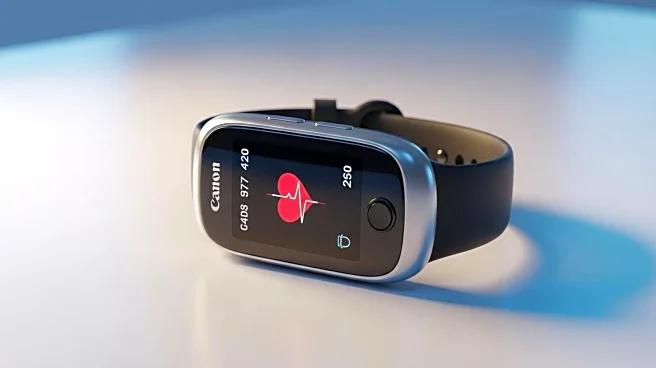What's Happening?
The U.S. self-care medical devices market is experiencing significant growth, with projections indicating it will reach $36.5 billion by 2031, up from $23.5 billion in 2023. This growth is driven by advancements in technology and strategic acquisitions by major companies. Notably, Whoop launched its latest wearables featuring ECG heart screening and extended battery life in May 2025, aiming to enhance users' healthspan. Additionally, Stryker's acquisition of Inari Medical for $4.9 billion in January 2025 is set to expand its vascular portfolio. The market is expected to grow at a compound annual growth rate (CAGR) of 5.7% from 2024 to 2031, according to a report by DataM Intelligence.
Why It's Important?
The expansion of the self-care medical devices market is crucial as it reflects a growing trend towards personal health management and preventive care. This growth is likely to benefit companies involved in the production and distribution of these devices, such as Johnson & Johnson, Medtronic, and Abbott. The increased adoption of self-care devices can lead to reduced healthcare costs and improved health outcomes for individuals. Furthermore, the integration of technologies like artificial intelligence and telehealth into these devices enhances their functionality and user engagement, potentially transforming healthcare delivery in the U.S.
What's Next?
As the market continues to grow, companies are expected to focus on innovation and strategic partnerships to capture emerging opportunities. The integration of advanced technologies and the expansion of distribution channels, including online pharmacies, will be key areas of development. Additionally, regulatory changes and healthcare policies will play a significant role in shaping the market landscape. Stakeholders will need to navigate these dynamics to maximize their market share and drive further growth.
Beyond the Headlines
The rise of self-care medical devices also raises important ethical and privacy considerations, particularly concerning data security and user consent. As these devices collect and analyze personal health data, ensuring robust data protection measures will be essential to maintain consumer trust. Moreover, the accessibility and affordability of these devices will be critical in ensuring equitable health benefits across different socio-economic groups.









